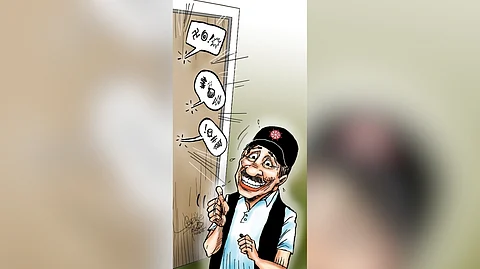
- NEWS
- the EDIT
- COMMENTARY
- BUSINESS
- LIFE
- SHOW
- ACTION
- GLOBAL GOALS
- SNAPS
- DYARYO TIRADA
- MORE

That old conjurer of human folly, Shakespeare, once wrote, “All’s well that ends well.” Still, in the gritty theater of Philippine politics and police intrigue, one is tempted to ask: Does everything truly end well, or do we simply turn the lights off while the audience is still confused about the plot?
Take that little drama that unfolded between Philippine National Police (PNP) chief Gen. Nicolas Torre III and Interior Secretary Jonvic Remulla, played out in memos, resolutions, and a flag ceremony that suddenly looked less about patriotism than about power.
On the surface, we’re told the controversy has been “settled.” Torre himself declared it resolved with the National Police Commission, headed by Remulla.
Settled how? What were the concessions? By whose authority? That, apparently, is none of our business. Torre would rather keep it “within the organization.” Convenient. And suspiciously neat.
One recalls those neighborhood disputes where two families are suddenly smiling at each other again after hurling rocks across the street for weeks.
“Naayos na (it’s been ironed out),” says the barangay captain, without explaining whether the matter was truly fixed or whether one side simply decided to swallow its pride. Peace, yes. But justice? Harmony? Those are different currencies.
The essence of the dispute is not difficult to grasp. Torre reshuffled his men, including senior officers like Lt. Gen. Jose Melencio Nartatez and Lt. Gen. Bernard Banac, moves that Napolcom later declared null and void.
The commission cited procedure, reminding the PNP chief that a reshuffle must go through the en banc — chaired, incidentally, by Remulla himself. The language of the resolution was clear: Torre’s order violated the rules, and “accountable officers” could face sanctions.
And yet, in defiance, Torre presented his newly appointed officials during a flag ceremony, uniforms crisp, salutes sharp. Hours later, the rhetoric softened: It’s all good, the matter is “settled.” Curtain closed.
But what exactly ended well?
If Torre backed down, then Remulla flexed his authority, and the PNP chief must live with the quiet humiliation of a general corrected.
If Remulla blinked, then the secretary’s influence over Napolcom is weakened, and a precedent would be set for the police hierarchy to test its boundaries further.
If there was a compromise, we are left to wonder what horse-trading took place behind closed doors. Either way, transparency was the first casualty.
Filipinos are asked to trust that everything is fine, much like children reassured that their parents are “just talking” while the dinner plates rattle.
But institutions cannot mature if controversies are swept under the rug and labeled “resolved.” In a democracy, processes matter as much as outcomes.
Torre may have his appointments, or not — we don’t even know. What we do know is that Napolcom’s authority was challenged, and whether it emerged strengthened or weakened remains deliberately obscured.
The danger here is the normalization of opacity. If generals and secretaries can hush up their quarrels with no public accounting, then the public is conditioned to accept that the rules governing their protectors are malleable.
It is one thing for leaders to compromise, another to keep citizens in the dark. In this drama, the curtain fell before the ending was explained. Which leaves us with the nagging suspicion that not everything has ended well.
